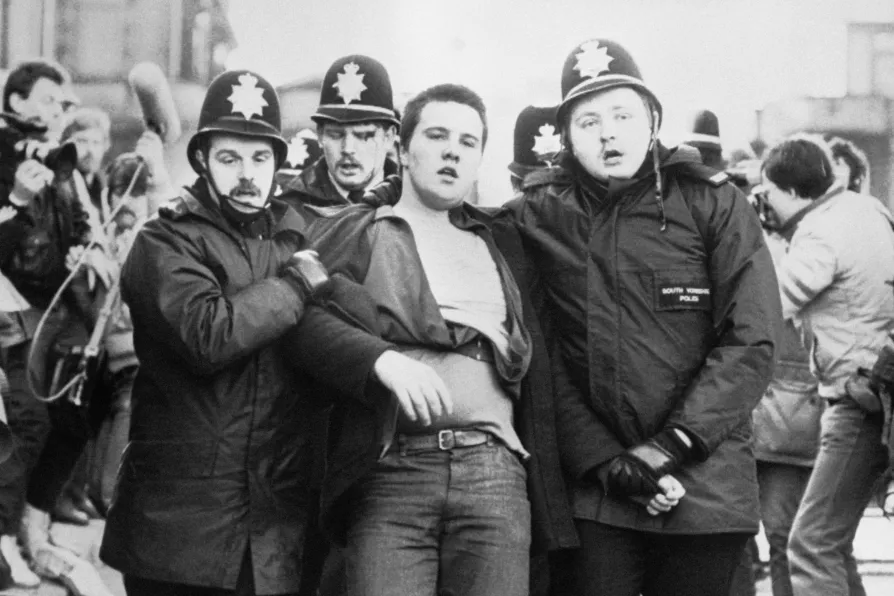The National Education Union general secretary speaks to Ben Chacko on growing calls to protect children from a toxic online culture

 BRUTAL: Policemen lead away a picket from outside the NUM HQ in Sheffield, 1984
BRUTAL: Policemen lead away a picket from outside the NUM HQ in Sheffield, 1984
FORTY years ago the government went to war against working people.
Their “crime” was exercising the democratic, civil and industrial rights for which working people had fought and died. It wasn’t about improving wages and conditions; it was a struggle for survival, jobs, and a way of life unique to our mining communities.
The pit was the cornerstone of mining community, providing both employment and wages. Its economic impact extended beyond the mine itself, fostering a thriving local economy with independent businesses lining the high street. Miners’ contributions would also finance essential community assets such as parks, sports facilities and welfare halls.

STEVEN ANDREW is moved beyond words by a historical account of mining in Britain made from the words of the miners themselves













